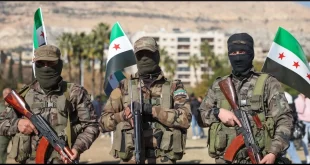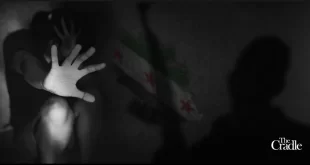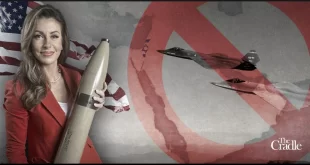by Steven Sahiounie, published on Mideast Discourse, October 113, 2023
Interview with Dr. Jamal Wakim
On October 12, additional US Air Force aircraft arrived in Europe and in the Middle East, at a time of open warfare between US ally Israel, and the Gaza strip, where 3 million unarmed civilians are being targeted by Israel because of the unprecedented attack on Israeli civilians by Hamas.
The US Central Command has announced the deployment of 354th Fighter Squadron and their A-10C Thunderbolt IIs to support the increased US presence in response to the events in Israel and the Gaza strip.
The 354th FS joins the A-10s from the 75th Fighter Squadron already in the region, which were deployed to Al Dhafra Air Base, United Arab Emirates, at the end of March 2023.
Also on October 12, two B-1B Lancer bombers from Dyess Air Force Base, Texas, have been deployed to RAF Fairford, UK as part of a new Bomber Task Force.
The US aircraft carrier and supporting destroyer fleet is already in place off the coast of Gaza.
Israel has promised to destroy Hamas, and their plan is to enter into Gaza and eliminate all Hamas fighters and their infrastructure. Many experts believe this goal is impossible to achieve, and the question is: will this conflict get wider, and develop into a regional war, drawing in Lebanon and Syria, and possibly Iran.
Steven Sahiiounie, of MidEastDiscourse, interviewed Dr. Jamal Wakim in order to ask some burning questions concerning this conflict.
Dr. Jamal Wakim has a PhD in International Relations and Modern Arab History, is a professor at the Lebanese University, and author of “The Struggle of Major Powers Over Syria”.
1. Steven Sahiounie (SS): Israel and Hamas at are war. That conflict has a big effect on Lebanon. In your opinion, will we see a regional War?
Jamal Wakim (JW): I believe we might witness a regional war, in case Israel starts a land attack on Gaza. In this way, I believe that Hezbollah will not stand still, and that it will participate in the ongoing conflict, by activating the northern front. If this occurs, I don’t believe that it will be confined to Hezbollah, but many groups; resistance groups from Syria, Iraq, and elsewhere will join forces and come to the Lebanese front to fight the Israelis.
2. SS: A Palestinian resistance group operating in Lebanon claimed responsibility for an attack on Israel. However, Israel responded by attacking Hezbollah positions. In your opinion. Is it Israel’s strategy to pull Hezbollah into this conflict?
JW: I believe that Israel is so confused, and that is the reason they targeted outposts for Hezbollah. Especially, because some hardliners in the Israeli government are trying to involve Hezbollah in the attack, or let’s say the conflict with Hamas, because they want to say it is not Hamas they are targeting, but it is actually Iran. Israel wants to involve the US in the conflict, and that is why they tried to instigate tension with Lebanon.
3. SS: The United States always protects Israel. President Biden order a US aircraft carrier to the sea near “Israel”. In your opinion, will the US use its military capabilities to widen this conflict, or to strike Iran?
JW: I believe that this might be a possibility, especially because this US aircraft carrier has started to coordinate its actions, and information with the Israeli side, and at the same time we heard about the US sending A-10 bombers to the UAE, and these are destined to be used against Iran. I believe this is a possibility in case the conflict widens, but so far things are being contained.
4. SS: Lebanon has not recovered from their political and financial collapse. There are great political divisions among the Lebanese. In your opinion, do the majority of the Lebanese people support the resistance and the end of the occupation of Palestine?
JW: Lebanon has always been divided, and there was never a consensus about the support of the resistance; whether it is the Islamic resistance, or before it the national resistance, or before it the Palestinian resistance. So, we have always had division, but this has never prevented the resistance groups from fighting Israel and achieving victory over it, and this time I believe this will also happen. If we go into confrontation, I believe that there will be a wide segment of society who will be supportive of the resistance, and the confrontation by itself will force the forces that are hostile to the armed resistance to Israel to acquiesce, and to not be vocal in their opposition.
5. SS: Syria is among the main supporters of the resistance. In your opinion, could we see Syria enter this conflict?
JW: I believe that this could be a possibility. Syria is already part of this conflict in many ways, and in case Hezbollah participates in the confrontation, I believe that the Syrian front will be activated, and we have already witnessed signs of this by the launching of rockets from Syrian territory into the Galilee. So, Syria will surely be part of the conflict if it widens and becomes a regional conflict.
Steven Sahiounie is a journalist reporting from Latakia, Syria, and sometimes Lebanon. He is a 2 time recipient of the Serena Shim Award for Integrity in Journalism
 Syria Support Movement solidarity with the Syrian people
Syria Support Movement solidarity with the Syrian people





